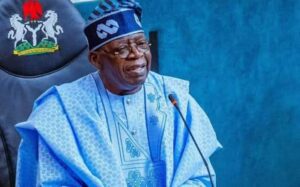Osun Guber: Oyetola, APC insist on Adeleke’s disqualification for forgery
… As Appeal Court reserves judgement
The Court of Appeal in Abuja has reserved judgement in the appeal filed by Governor Ademola Adeleke, the Peoples Democratic Party (PDP) and the Independent National Electoral Commission (INEC) against the judgement of the tribunal declaring Alhaji Adegboyega Oyetola of the All Progressives Congress (APC) as the valid winner of the July 16, 2022 governorship election.
This is even as Oyetola and the APC prayed the appellate court to hold that Governor Ademola Adeleke was unfit to run for the office of the governor, having established a forgery case against him by the Tribunal.
The panel, led by Justice Muhammed Lawal Shuaibu reserved the judgement on Monday after taking arguments from counsel to Adeleke, PDP and INEC, Onyechi Ikpeazu, SAN, Alex Izinyon, SAN and Prof. Paul Ananaba, SAN respectively and counsel for Oyetola and the APC, Prince Lateef Fagbemi, SAN.
In all the court listened to four different appeals, including the cross appeal filed by Oyetola and the APC.
Arguing the cross appeal, counsel for Oyetola, Chief Akin Olujinmi (SAN) noted that the tribunal erred in law when it held that Adeleke was qualified to contest for the election, even after being found to have submitted a forged certificate. To this end, it prayed the Appeal court to hold that Governor Adeleke was not qualified to stand for the election in the first instance.
Counsel for the appellants had argued that the failure of the tribunal member 2, Chief Magistrate Basiru Rabi to make pronouncement as regards the lead judgement other than signing it render the decision nullity.
Justice Shuaib at this point challenged the Adeleke’s counsel to explain the interpretation of the Chief Magistrate Rabi’s signature on the judgement and the use of “we” in the majority judgement. But Ikpeazu insisted that signing of the judgement was not enough.
On the issue of BVAS report upon which Oyetola challenged the election, they argued that assuming the tribunal had found that there was over-voting as shown on the report, it should have applied the principle of the Margin of Lead and order a rerun election in the affected polling units.
The INEC counsel also in his arguments admitted that the INEC witness indeed admitted over-voting on the polling units upon which she was cross-examined, but it was not enough to nullify the election.
Puncturing the arguments of the appellants, counsel for Oyetola, Fagbemi, SAN said, there was confusion among the appellants’ submissions, as they had produced three different BVAS reports, which justified the position of the tribunal that there was indeed over-voting in that election.
“INEC claimed there were over-voting in over 1, 000 polling units, the implication is that the 744 polling units we challenged fall within the said over 1,000 polling units. We are only concerned about 744 polling units and we built our case around those areas. They can keep the rest, we concentrated on what we need,” Fagbemi added.
He argued further that the issuance of another BVAS report and production of BVAS machines in court after a petition had been filed based on the earlier BVAS report issued to the respondents (Oyetola and APC) was nothing but an afterthought.
According to him, though the INEC produced the BVAS machine and the boxes containing the machines were opened, but the machines were never operated to authenticate the claims made by the so called expert, who was hired by the first appellant (Adeleke).
Fagbemi, SAN, further submitted that since the said report from the inspection of the BVAS machine did not emanate from INEC, which conducted the election, the first appellant who was the beneficiary of the return made by INEC, cannot come up with a report other than that of INEC.
He said the respondents (Oyetola and APC) who were the Petitioners at the tribunal had proven over-voting and the tribunal was right to have so held.
On the issue of application of Margin of Lead being canvassed by the appellants, Fagbemi averred that the they did not make any pleading to that effect, and no evidence was led on specific polling units.
In the cross-appeal filed by Oyetola and the APC on the forged certificate by Adeleke, Olujinmi argued that since the tribunal had found that he forged the certificate he ought to have been disqualified from contesting the election.
He said that the document tendered which the tribunal relied on to found him qualified for the election were documentary hearsay that could not be relied upon.
He argued that the judgement of the Court of Appeal relied on by the cross-respondent could not exonerate Adeleke as the arguments canvases and evidence tendered in the previous case were not the same with the ones before the tribunal. He, therefore, prayed the court to allow the cross- appeal.
After listening to all the arguments of counsel, the panel reserved judgement in all the four appeals, which it noted would be communicated to parties at a later date.




